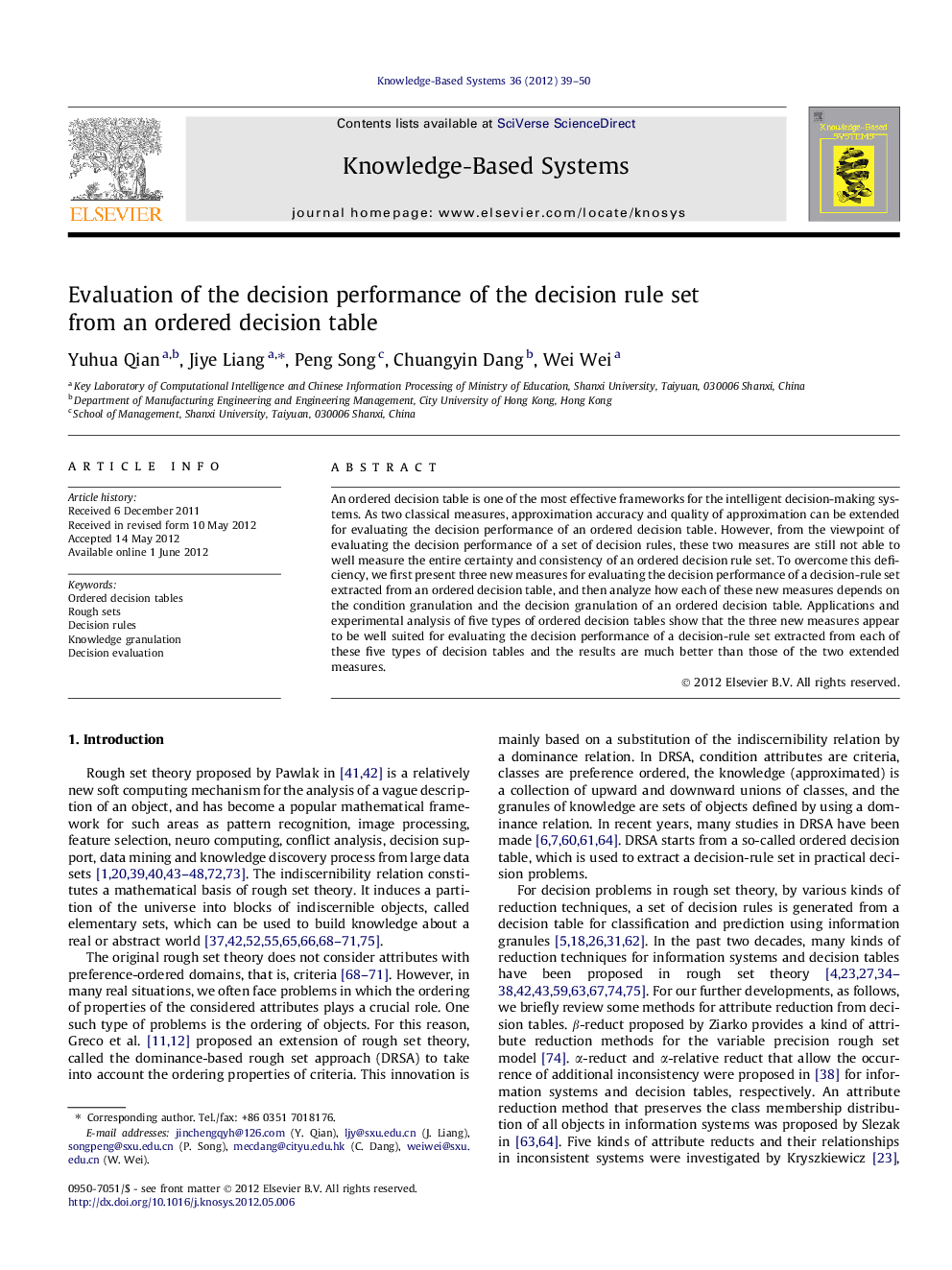| Article ID | Journal | Published Year | Pages | File Type |
|---|---|---|---|---|
| 403700 | Knowledge-Based Systems | 2012 | 12 Pages |
An ordered decision table is one of the most effective frameworks for the intelligent decision-making systems. As two classical measures, approximation accuracy and quality of approximation can be extended for evaluating the decision performance of an ordered decision table. However, from the viewpoint of evaluating the decision performance of a set of decision rules, these two measures are still not able to well measure the entire certainty and consistency of an ordered decision rule set. To overcome this deficiency, we first present three new measures for evaluating the decision performance of a decision-rule set extracted from an ordered decision table, and then analyze how each of these new measures depends on the condition granulation and the decision granulation of an ordered decision table. Applications and experimental analysis of five types of ordered decision tables show that the three new measures appear to be well suited for evaluating the decision performance of a decision-rule set extracted from each of these five types of decision tables and the results are much better than those of the two extended measures.
